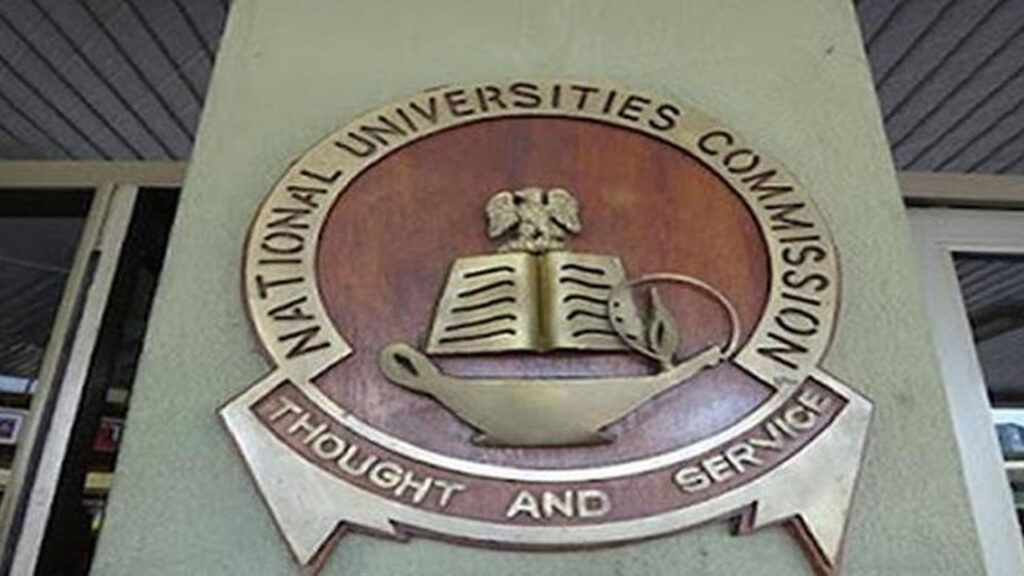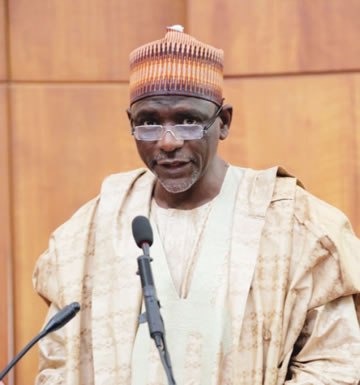 As Nigerian students prepare to write the May/June 2022 West African Senior School Certificate Examination (WASSCE), issues such as poor performance in certain key subjects and examinations still persist. The challenge is not limited to poor performance. There is also the possibility of cheating and all forms of malpractices showing up in the centres.
As Nigerian students prepare to write the May/June 2022 West African Senior School Certificate Examination (WASSCE), issues such as poor performance in certain key subjects and examinations still persist. The challenge is not limited to poor performance. There is also the possibility of cheating and all forms of malpractices showing up in the centres.
Despite the various measures introduced by the West African Examination Council (WAEC) to curb examination malpractices, statistics on withheld results show that the malaise is not showing any signs of abating.
Although figures from last year reveal improvement in performance, particularly, in subjects such as, Mathematics and English, the incremental gain is still negligible.
For instance, the May/June 2018 result showed that of the 1,572,396 candidates, 786,016 students, representing 49.98 per cent, obtained credits and above in five subjects, including English Language and Mathematics.
The body said the performance, when compared to what obtained in the same examination in 2016 and 2017, reveal a decline.
According to WAEC, the result of 2016 was 52.97 per cent, while 2017 was 59.22 per cent. Similarly, WASSCE results for private candidates in the 2018 November/December Examination, recorded 60 per cent failure.
Out of the 109, 902 candidates that sat for the examination, 39,557 candidates, representing 35.99 per cent, obtained credits and above in a minimum of five subjects, including English Language and Mathematics.
In 2019, about 180,205 results were withheld over cases of examination malpractice, while for November/December 2019 private candidates examination, 9,457 results were withheld out of 94,884 candidates; of the figure, 33,304 candidates, representing 35.10 per cent, obtained credits and above in a minimum of five subjects, including English Language and Mathematics.
For 2020, out of 1, 538, 445 candidates, about 1, 003, 668, representing 65.24 per cent obtained credits and above in a minimum of five subjects, including English Language and Mathematics. The results of 215,149 candidates, representing 13.98 per cent were withheld in connection with various reported cases of examination malpractice.
For private candidates, out of 61,509 that sat for the exam, 31,751 obtained credit and above in a minimum of five subjects, while results of 5,548 candidates were withheld.
Last year’s performance showed marked improvement in performance. Out of 1,560,261 candidates that sat for May/June exam, 1,274,784, representing 81.7 per cent obtained credits and above in a minimum of five subjects, including English Language and Mathematics, while 19.44 per cent of the results were withheld.
For private candidates, 48.61 per cent of the candidates secured credits in five subjects, including English Language and Mathematics, while 3,968 results, representing 7.71 per cent of candidates were seized.
Speaking on the performance of students in the last few years, stakeholders agreed that candidates must approach the examination with all seriousness so that cases of malpractice would reduce, while the pass rate hit a high mark.
An education consultant, Mr Akin Benjamin, who noted that the 2021 results was a lot better than 2020 with a little over 16 per cent improvement, said schools need to do more by creating a climate that supports each learner and sufficiently challenge them to be at their best always, even in subjects where they appear weak.
He said school leaders must ensure strict supervision of teachers’ lessons, prepare students for examination and ensure they come out in flying colours.
Besides, Benjamin said parents might need to engage qualified hands as extra lesson teachers and buy the right textbooks for their children.
He said: “Students must pay attention to study, follow through on classwork and assignments. They should aim for, and prepare for the best always. Students must avoid all forms of distractions if they want to pass excellently.”
Although Mrs. Joy Ogufere, a teacher, noted that 2021 result was an improvement on previous years, there were failures due to students’ weakness in subjects, which could be due to incomplete or inadequate preparation.
She also cited lack of study, saying most teachers don’t prepare their students on how to answer questions appropriately.
She said: “Some learners have become solely dependent on malpractice, even before the exam commences, hence they spend more time looking for the most authentic agent for malpractice, than actually preparing for the examination. Parents can help to supervise learning from home and monitor what learners do in school, especially among their peers.
“Teachers can also labouriously get involved in teaching and impacting. Do not breeze past a topic, rather delve into it, as much as is expected and follow up learners to ensure they get concepts cleared. Excellent performance is always there. It requires a slight turn up of the soil to exhume it,” Ogufere added.
She added that teachers must use techniques that will trigger learners’ listening abilities and motivate them to be interested in their success.
“Show them how responsible they are for their future. Teach them to learn, listen and look out for clues and tips in questions that can help them solve it correctly. Teach learners to love learning,” Ogufere advised.
An education coach, Olubunmi Adewakun, said one area that has become a source of concern is how results seem to be getting bad every successive year. “In November when the results were released, the examination body said about 81 per cent obtained five credit passes, including English language and Mathematics. We have had it worse in the past.”
Adewakun said the result was a pointer to the fact that some of the students are weak in certain subjects.
She said schools should have intervention classes for students who are weak in certain subjects, saying their weaknesses may be as a result of several factors, hence the need to discover the factors and know the right tools and skills to help the students have great learning outcomes.
The educationist noted that excellent performance seen in the past could be brought back if all impediments are addressed.
According to an educator, Terry Esangbedo-Philips, because of the focus on certification and new admission process, many students do not bother to prepare for examinations anymore, as they either look for machineries or go to special centres where they are assured of fantastic results.
“On the other hand, many private schools want to meet up so they arrange results for their students. At the end of the day, many students who studied hard don’t make enough good grades to meet requirements for admission, while those who arranged results get in. This is a major cause for concern for me as a parent and an educator,” she said.
A parent and teacher, Juliet Uzuakpundu, said the major issues surrounding students poor performance in the exams, is the fact that the real essence of the examination is lost, as schools are chasing general good results for themselves as against ensuring that students are tutored to do well despite all odds.
She said students are not ready to study because they have not been adequately prepared for excellence and so, they look for means to get around studying and are aided by parents, teachers and parents.
National coordinator, concerned parents and educators’ initiatives, Kemi Koleowo, condemned parents who arrange and pay for special centres for their wards, saying they are sending wrong signals to the children not to study hard for examinations.
She said stakeholders have a lot to do to bring back the level of excellence that Nigeria had in the past through reformation that her organisation has been clamouring for across the country.
Koleowo also berated officials that assist students to cheat by leaking papers before examination day, saying the examination body should fish out those involved in the act and bring them to book.
She also called on the Federal Government to invest heavily in education as a way of encouraging teachers without compromising.
A legal practitioner, Mrs. Helen Essien, said the fact that 2021 results are the best in 10 years is nothing to celebrate, as the result does not mean the best ever, nor does it mean excellence.
Advising Nigerians to jubilate with caution over the 2021 results, Essien said the results pointed to the fact that some of the students are weak in certain subjects.
Speaking on measures to ensure students pass with flying colours without any external support, the legal practitioner advised parents to engage home teachers to assist their wards in subjects that they are lagging behind in.
“Use of past question papers and tutoring by experienced WAEC markers goes a long way in guiding the students in not only answers to the questions, but how to answer them according to WAEC standards. Schools should try to follow the laid down curriculum and employ qualified teachers for the subjects.
“Schools could have weekend extra classes in order to meet up in the subjects where the school, for any reason, is lagging behind.
Essien noted that the country could only bring back excellence if qualified and dedicated teachers are employed. She also advised schools not to cut corners or employ quacks and hope that they can cheat their way through exams.
“Children should be made to repeat classes if they fail. They must not all be ‘pushed’ to the terminal class only for the weak among them to meet with failure.
“Parents must be involved in their children’s academic journey to ensure that they study hard. In the past, when a child was taking an external examination, the entire family, especially the mum, was deeply involved as though they were also taking that examination. The child’s success was regarded as the family’s success and also the failure. No family wanted failure so parents went the extra mile, they even knew the exam timetable! Nowadays, parents are nonchalant, to them, the end justifies the means even if it means bare-faced cheating,” she said.
She also stressed the need for society, including government to start rewarding academic excellence over nepotism, sex, beauty, tribe, religion, and others
‘Like in the past, government, multinational organisations and non-profit organisations must be willing to give scholarships and employment to students who have excelled to encourage students to pursue excellent grades.
To birth academic excellence and promote students’ competitiveness, Essien called for the scrapping of the Quota or Federal Character system, which she said bred and promoted mediocrity.
She also advised WAEC to always select men and women of integrity as exam invigilators.
“Exam cheats and their accomplices must be publicly punished as a deterrent to others. The punishment for exam malpractice must be enforced,” she said.













